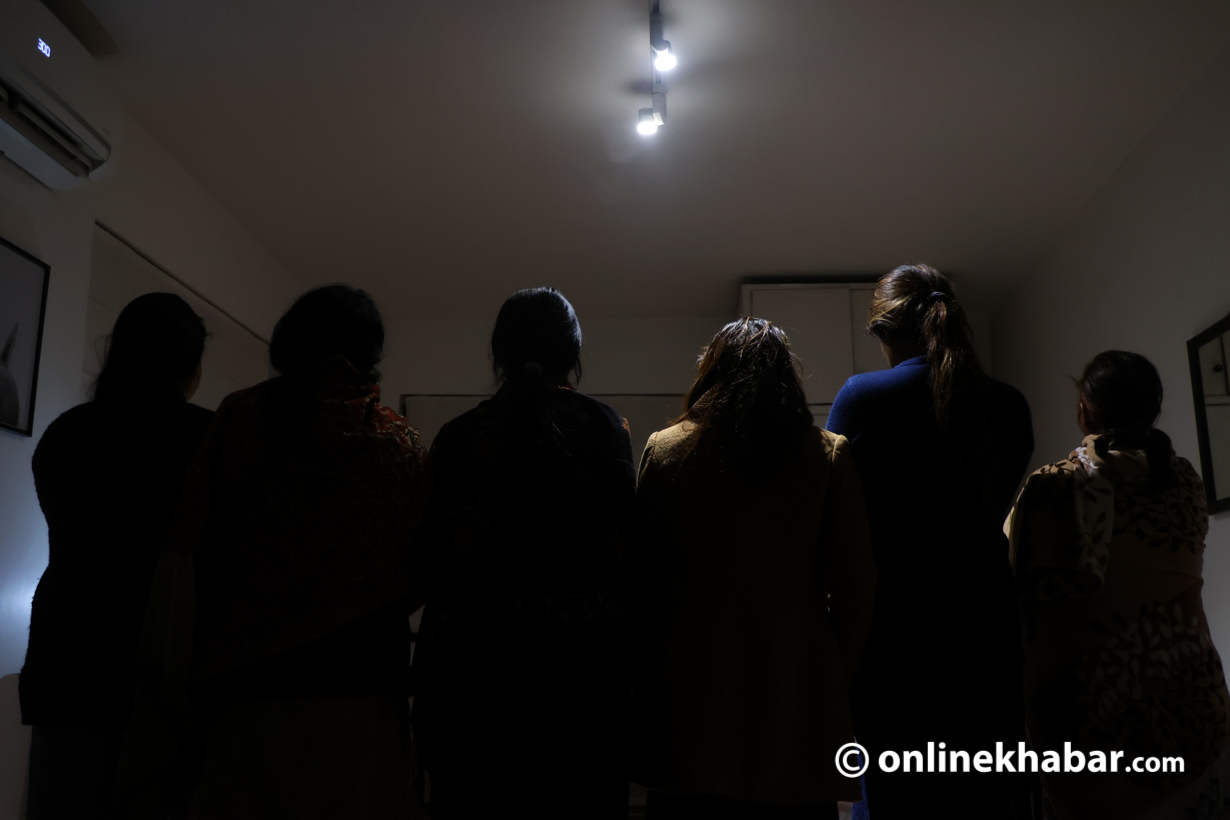
Just when the Covid-19 crisis loomed, Nepali embassies in Malaysia and the Middle East were extraordinarily busy answering calls from Nepali migrant workers, requesting for returning to their home while the others complaining about lack of work and wages.
The embassies then concluded that a large number of Nepali workers were destined to lose their jobs due to the crisis, but they could not predict the number. As the crisis worsened, the number of online forms for rescue went up drastically.
Udaya Raj Pandey, Nepali Ambassador to Malaysia, was worried that it would affect foreign employment for Nepalis severely. But, as the whole world tries to refresh itself from the crisis now, he feels a little relieved. The reason: the crisis impacted Nepali workers abroad less severely than anticipated.
As of Tuesday, 32,878 Nepali workers have returned to Nepal on chartered repatriation flights. However, the government does not know the exact number of people, among these returnees, who have lost their jobs.
When the pandemic started, the Foreign Employment Board had predicted that more than 400,000 Nepali could lose their job as the immediate effect, out of which 127,000 would have needed emergency rescuing while 280,000 would have to return home after losing their job. The figures were based on the predictions provided by the embassies.
But the recent analysis suggests that fewer than expected workers have been affected. Yet, the embassies are not able to explain this situation statistically.
Here in Kathmandu, there were fears that the government would find it very difficult to manage the returnees. Even Prime Minister KP Sharma Oli’s speech would express those fears.
Now, embassy officials say they are relieved because the situation is better than what they feared. Further, they claim the numbers of affected workers would not go up significantly.
The officials argue that the crisis impact was minimised due to effective steps taken by the governments of these destination countries to normalise their economy.
Malaysia

Malaysia tops the list of the major primary destination countries for Nepali migrant workers. The Foreign Employment Board had predicted that 30,000 Nepalis would lose their job and 7,000 of those would need emergency rescuing in this country.
But, according to Ambassador Pandey, around 1,000 have lost their job due to the pandemic. Likewise, 4,286 Nepalis have returned home from this Southeast Asian country till now, but most of those returning were living illegally or with expiring visas.
Currently, only 10-15 new infection cases are reported in Malaysia per day and the markets are slowly returning to normalcy. Many of the labourers have returned to their work. Yet, those Nepalis working in hotels and restaurants are going through a difficult phase as many have lost of their jobs and more are at risk of losing their jobs.
However, the embassy has concluded that there has been no major impact on Nepali workers in Malaysia due to the Covid-19 crisis as there are a few workers who have lost their jobs and have to return, except for those whose visas have expired and are staying illegally.
Qatar

Qatar has a different situation; it seems more severely affected by the crisis.
So far, 3,786 people have returned to Nepal, and around 15,000 more still wish to come back. Some of the big companies in the country have been shut down. According to the Nepali Ambassador to Qatar, Narad Nath Bharadwaj, five companies have asked permission to send their Nepali workers, around 3,000 to 3,200 in number, back to Nepal at their own expenses.
The ambassador states that regular flights are yet to resume in the Gulf country while their borders have been sealed, and major projects and industries have not been restarted.
According to the embassy, most of the Nepalis were working as labourers for constructing stadiums and other infrastructures for the FIFA World Cup 2022. Only a few workers are seen busy in these projects. Though many of the workers have not lost their jobs, they are facing many problems associated with the projects. According to Bharadwaj, it is hard to predict the number of people who can lose their job and depart for home.
“Many of those who had already booked their flight tickets have made some agreements with their employers and made up their mind to stay,” says Bharadwaj, “We are expecting that the numbers of people rejoining their work will increase once the conditions become normal.”
However, the situation is not as bad as what was predicted earlier, the ambassador claims. But, as many Nepalis are facing work-related problems, normalcy cannot be declared as well.
“Many workers have confidence that things will be normal and they can rejoin their work. If the situation becomes normal, we do not expect a large number of people losing their job and going back home.”
UAE

The United Arab Emirates faces a similar confusion like that of Qatar. As the unemployment rate is increasing daily, the Nepali Embassy has been unable to imagine what the crisis would lead to in terms of Nepalis working there.
Earlier, the Foreign Employment Board had predicted that 12,000 workers could need immediate evacuation while 55,000 more could lose their job.
Currently, around 25,000 have listed their names as those wishing to come back home; 7,676 have already returned.
Some companies have proposed charter flights to send Nepalis back. Meanwhile, around 2,500 Nepali labourers of a company called Transguard are waiting for rescue after losing their employment.
According to an official, the number of Nepalis losing their job is higher in the UAE than it is in any other destination country. As the economic conditions of many companies are degrading, many have adopted the policy decreasing the numbers of foreign employees. It means Nepalis are also at the receiving end.
“We had feared that something bad may happen,” says the official. “But, the complaints are gradually decreasing and we are hoping things to be normal again.”
Saudi Arabia

At the beginning of the pandemic, the Foreign Employment Board had predicted that 20,000 could be needing immediate rescue and 100,000 more who could lose their job and return home from Saudi Arabia.
The Nepali Embassy there, however, is not able to estimate the loss of jobs of Nepali nationals due to the pandemic. Around 25,000 have expressed their desire to return while 5,044 have already returned.
Nepali Ambassador to Saudi Arabia, Mahendra Prasad Singh Rajput, says most of those desiring to return home are currently facing many problems and they should be regarded as affected.
Rajput says that it is difficult to estimate the loss immediately because of its wider geography. But, he states that the number of affected workers should not be smaller. He, however, sees rays of hops as the pandemic is being controlled and the economic activities in the country are slowly increasing.
The ambassador says every worker has different problems. Some have already lost their jobs and need to return home whereas some are worried that they would be unemployed in Nepal and therefore have made up their mind to stay and work as much they would be given. Many of those who had wished to return to Nepal earlier have started to rethink about the situations. Many have expressed the desire to stay and work and not leave their jobs even if they could face many problems. Rajput argues that due to this reason, it has been hard to estimate the number of unemployed Nepali nationals.
Kuwait

Primarily, the Foreign Employment Board had estimated that around 9,000 could need immediate rescuing from Kuwait while 15,000 more could lose their job and would be returning to Nepal.
Around 5,500 Nepalis have returned from Kuwait, out of which only 2,800 were working legally. Around 3,000 illegal migrants have been pardoned by the Kuwaiti government and sent back home at its own expense.
The Ambassador to Kuwait, Durga Prasad Bhandari, says that around 5,500 more have expressed their desires to return home. But, many could rejoin their work as the country is loosening the lockdown.
The embassy had estimated around 10,000-15,000 Nepali nationals potentially losing their jobs due to the Covid-19 crisis. But as the Kuwait government formulated the policy of pardoning the illegally-staying migrant workers at the same time, around 3,000 Nepalis decided to return to Nepal even when their employment was not affected at that time.
Currently, the economic activities in Kuwait are on a gradual rise. Ambassador Bhandari expects the people who had initially desired to return home to change their decision and stay as the industries and projects are resuming their operations.
“We believe that the situation is slowly getting normal,” he says. “We are not getting phone calls at the embassy like before, which is definitely a good sign.”


























